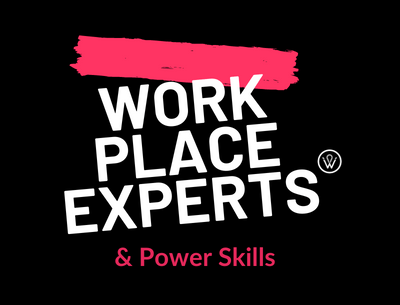
Skills are the new Operating System
Here is how you can get your business up to speed with the latest workplace trend
Keeping up with the constant demands of the business in a volatile, uncertain, complex and ambiguous environment is tough while keeping a pulse on your employee’s skill-building needs. However, the most successful companies help their employees to actively reskill and upskill throughout their careers. Continuous training is now a priority for businesses and the need for skills that support this has become an operating system for businesses across the globe. The latest trend is that skills are the new operating system for business.
Skills are a great way to build employee loyalty and keep your staff motivated. Whether it’s giving an employee a bonus or investing in their training, make sure you reward their skills. This provides incentive and encourages employees to stretch themselves – and they will appreciate it too.
Here are three ways you can get your business up to speed with the trend and integrate skills as the new operating system:
- Provide continuous training for your existing employees
- Make sure employees are growing with the job
- Give bonus’/pay rise based on their skills

Provide continuous training for your existing employees:
Continuous training for your existing employees can help them learn new skills, adapt to a changing environment, and grow within your company. The fast pace of today’s business world means that it’s inevitable most employees will have to expand their skill set. As such, it’s up to employers to offer continuous learning opportunities so workers can improve their skills and stay relevant.
“TALENT ISN’T TALENT UNLESS IT’S DEVELOPED ON-GOING”
According to the Association for Talent Development (ATD), companies that offer comprehensive talent & development programs have 218% higher income per employee than companies without formalized programs. These companies also enjoy a 24% higher profit margin than those who spend less on development.
Continuous training is the process by which your employee’s skills are constantly up to date with the latest technological and social advancements. This can include anything from formalized education and certifications to hands-on practices and simulations. It’s important to understand that continuous training doesn’t just mean providing more classes; it also includes offering ongoing feedback and mentorship.
As a manager/L&D leader, you should be proactive about helping your team members develop their skills. You can do this through coaching sessions, one-to-one meetings, or simply asking questions when necessary. If you want to know what your employees’ strengths are, ask them directly. When it comes to developing your own skills, there are many resources available to help you gain knowledge. For example, you could take online courses, read books, attend seminars, watch videos, join forums, or communities, etc.
Manage your Upskilling process and join us at Wewent.
Make sure employees are growing with your business:
The employees of today and tomorrow will be measured by their ability to think and learn, not by the number of certifications they have achieved throughout their careers. It’s time to put as much time and research into developing your workforce as you would when making business decisions. As more people leave school and join the workforce with lifelong learning skills, it’s becoming increasingly difficult for companies to find the right skill sets for each position. The way forward is not about certifications or degree programmes, but about focusing on how we can best invest in our employees’ residual skills — like problem solving and innate creativity.
In order to ensure your employees are growing with your company, you need to provide them with access to the tools and support they need to successfully complete their projects. In addition to providing them with the right equipment, software, and technology. It’s also crucial to make sure they have the right information. By giving them the opportunity to access the right content. They can learn and grow without having to spend hours searching for answers.

Give bonus’/pay rise based on their skills:
Businesses are realizing that skills are the new operating systems. They provide companies with the agility they need to compete in a fast-paced and hypercompetitive environment. Every business wants to bring in the very best talent. But also make sure they not only stay, but rise up through the ranks. While this is often a question of compensation, it’s not the whole picture. Being rewarded for your achievements with a pay rise or bonus still has enormous value. But we also need to ensure employees feel valued for their skill growth as well.
This means businesses must look beyond the salary and consider how they can reward employees for their continued development. Non-monetary rewards such as continuous learning and reskilling, and skill-building experiences are a great way to start.
As a manager/L&D Leaders, you have an important role to play in ensuring that your employees are given the chance to develop their skills. To achieve this, you need to be proactive about helping them develop their skills. There are many resources available to assist you in doing so. Make sure you use these to help your team members become better equipped to face the challenges of the future.
If you want to know more about Skills Management, please visit our website.




